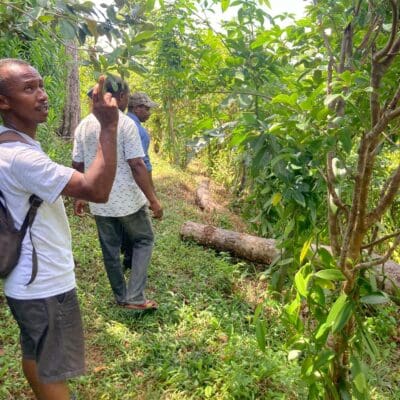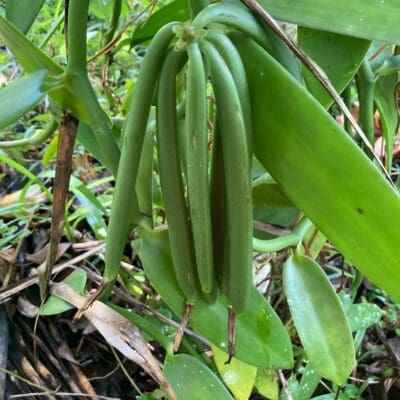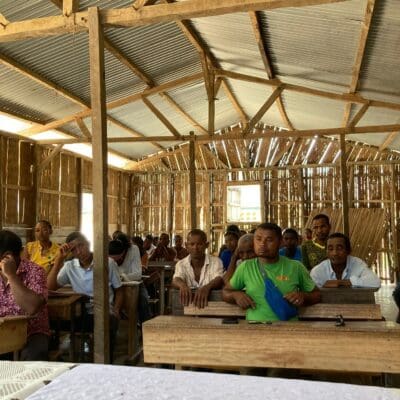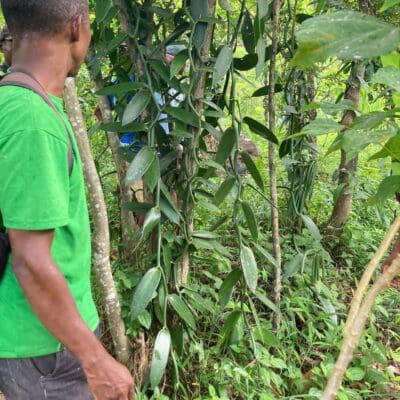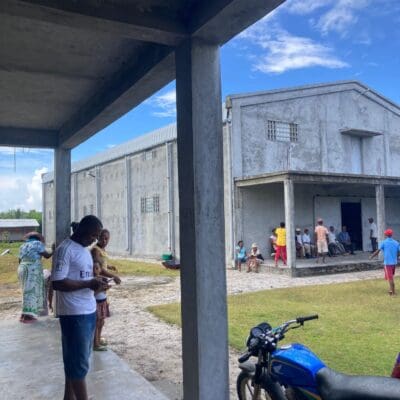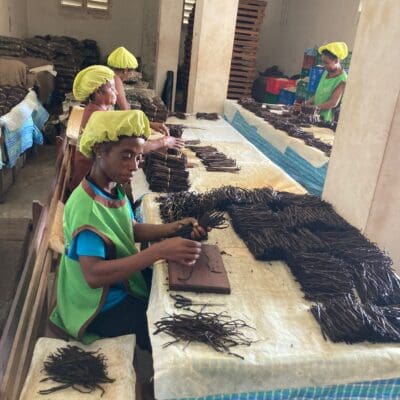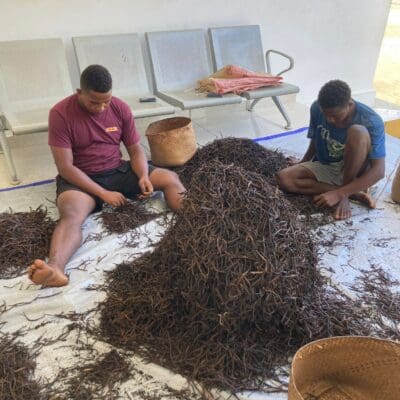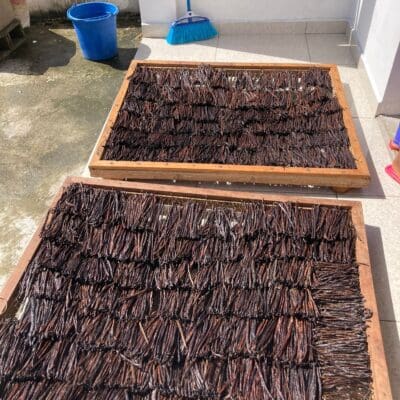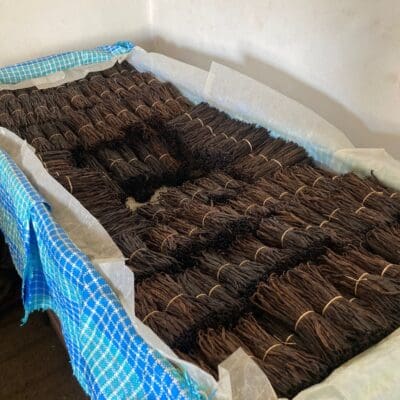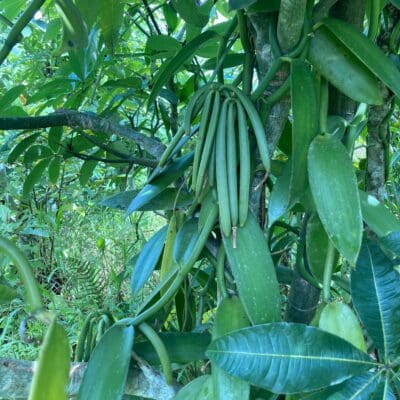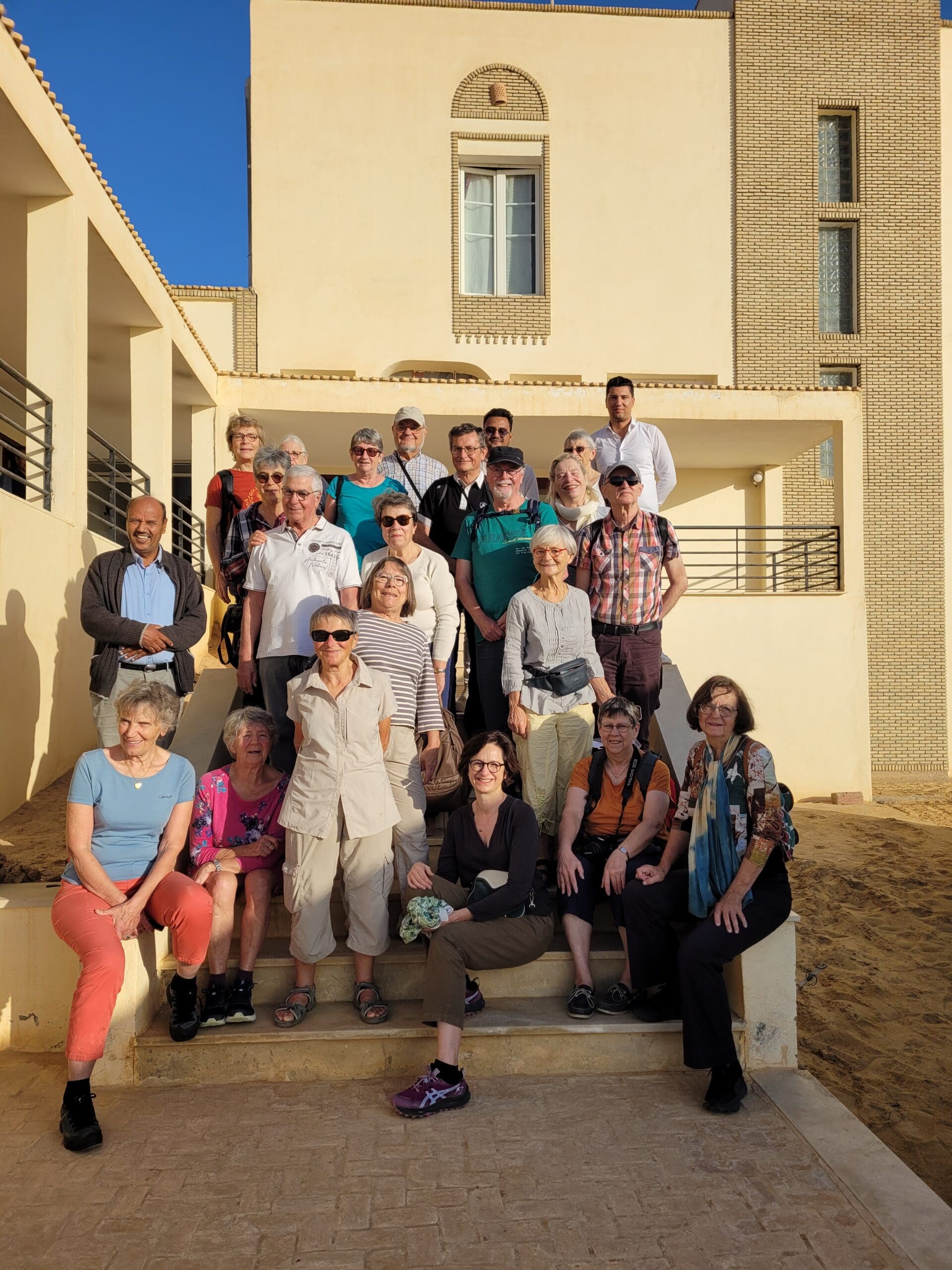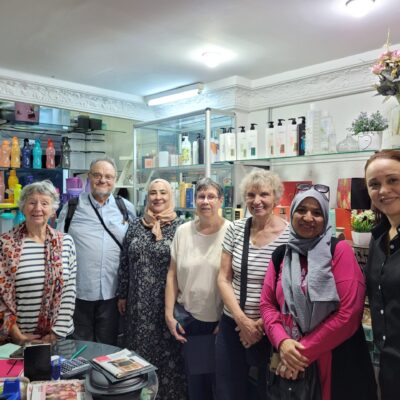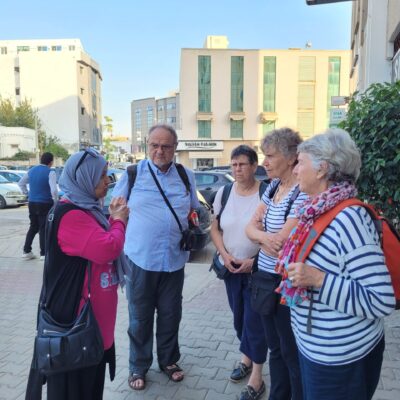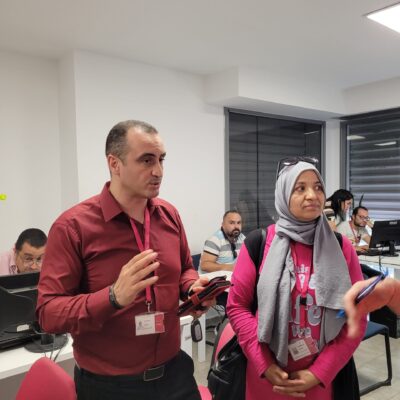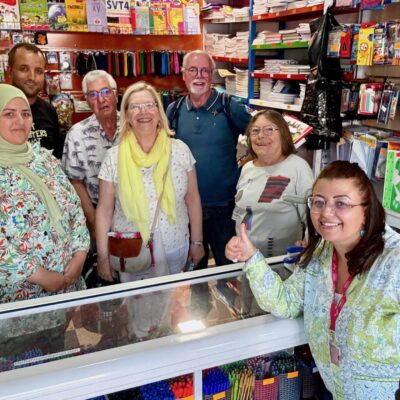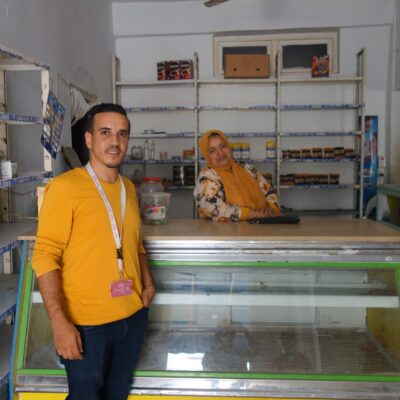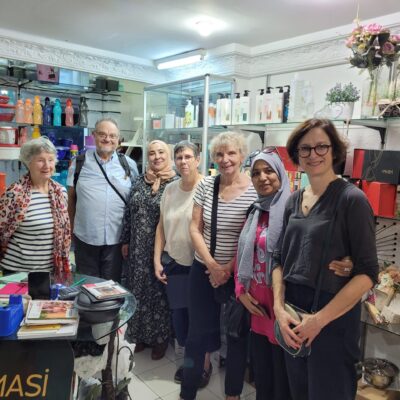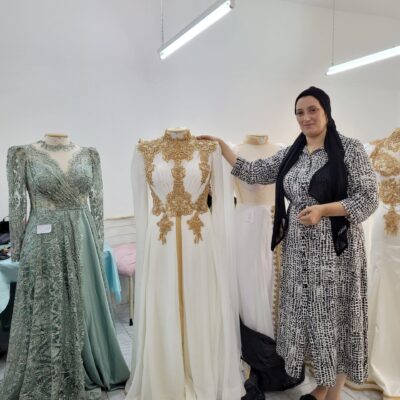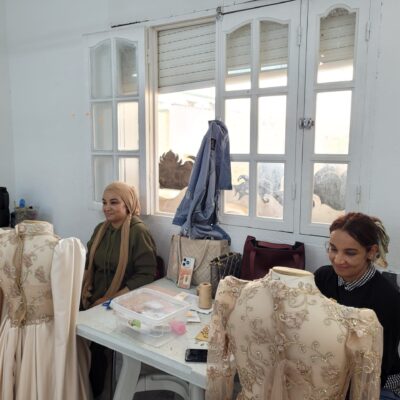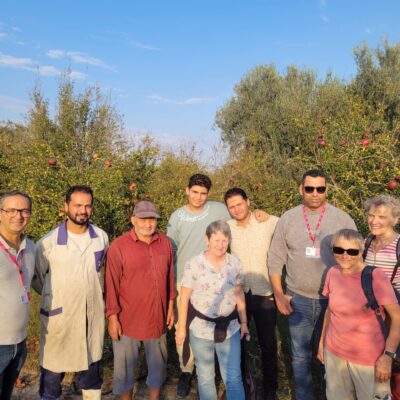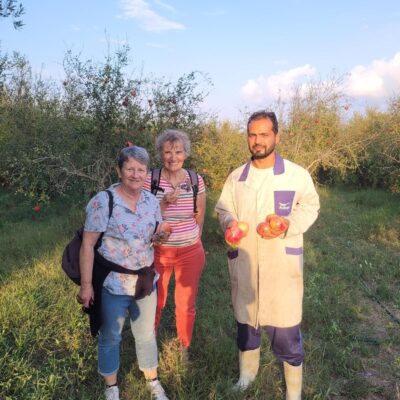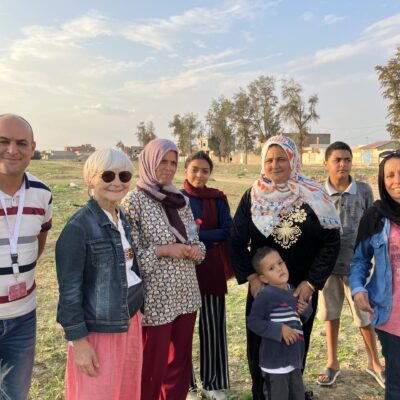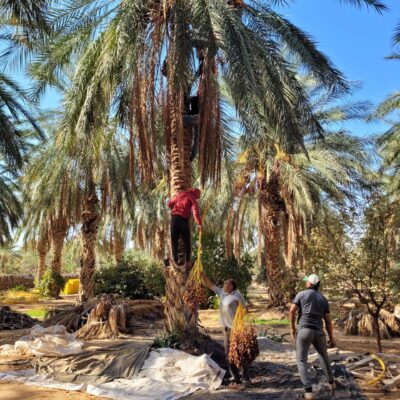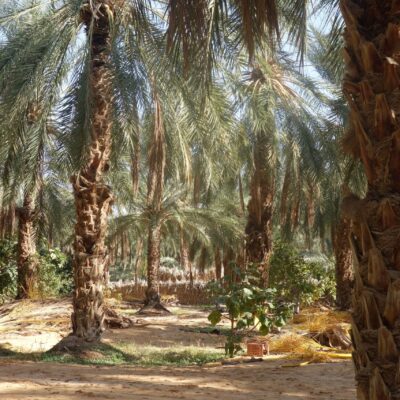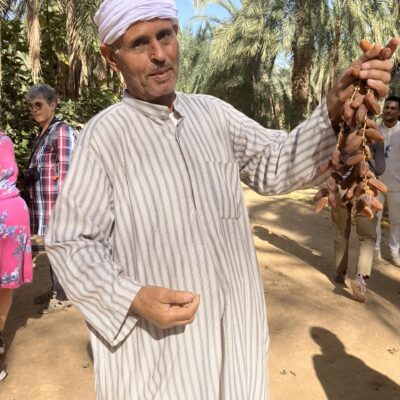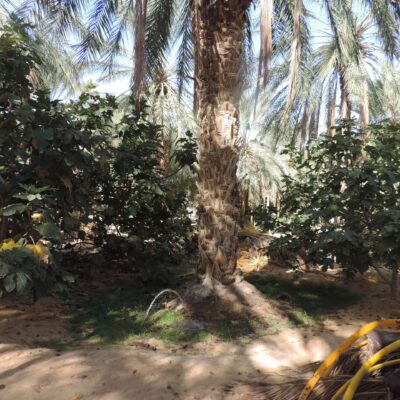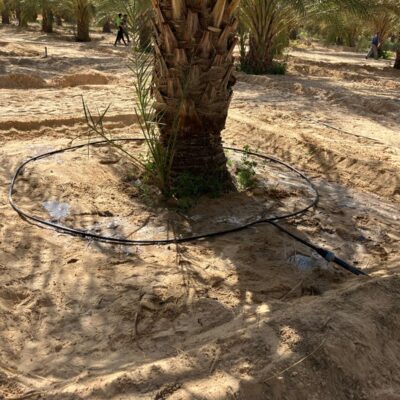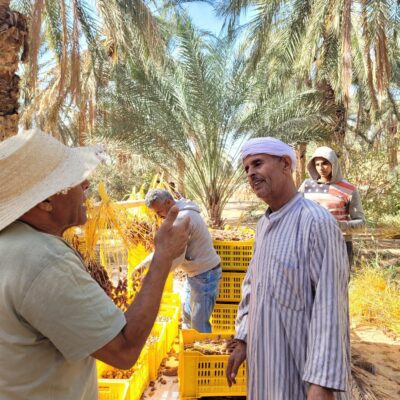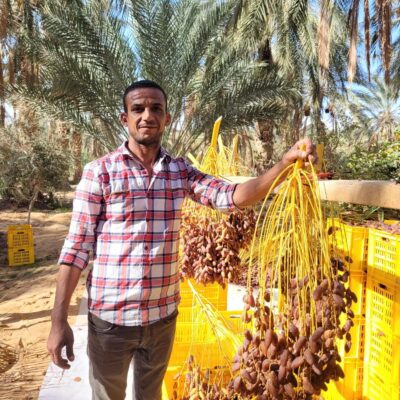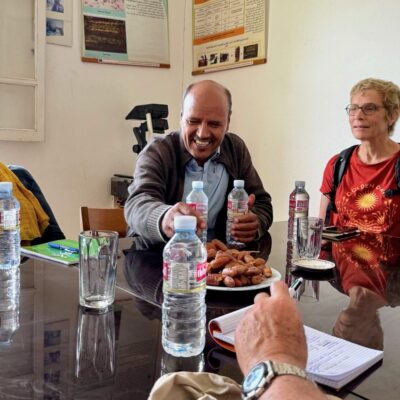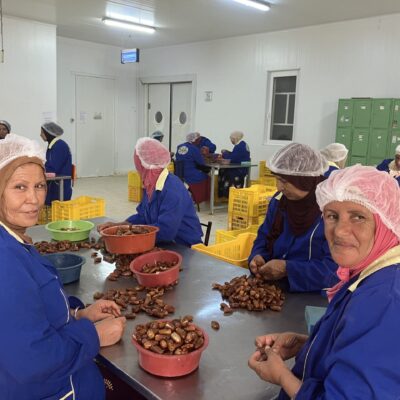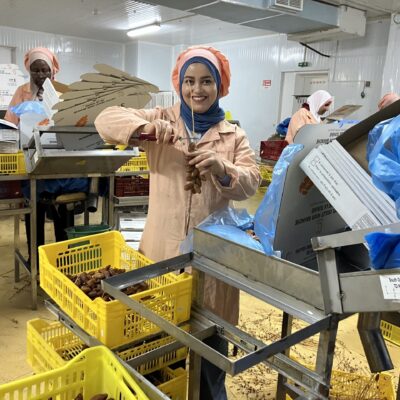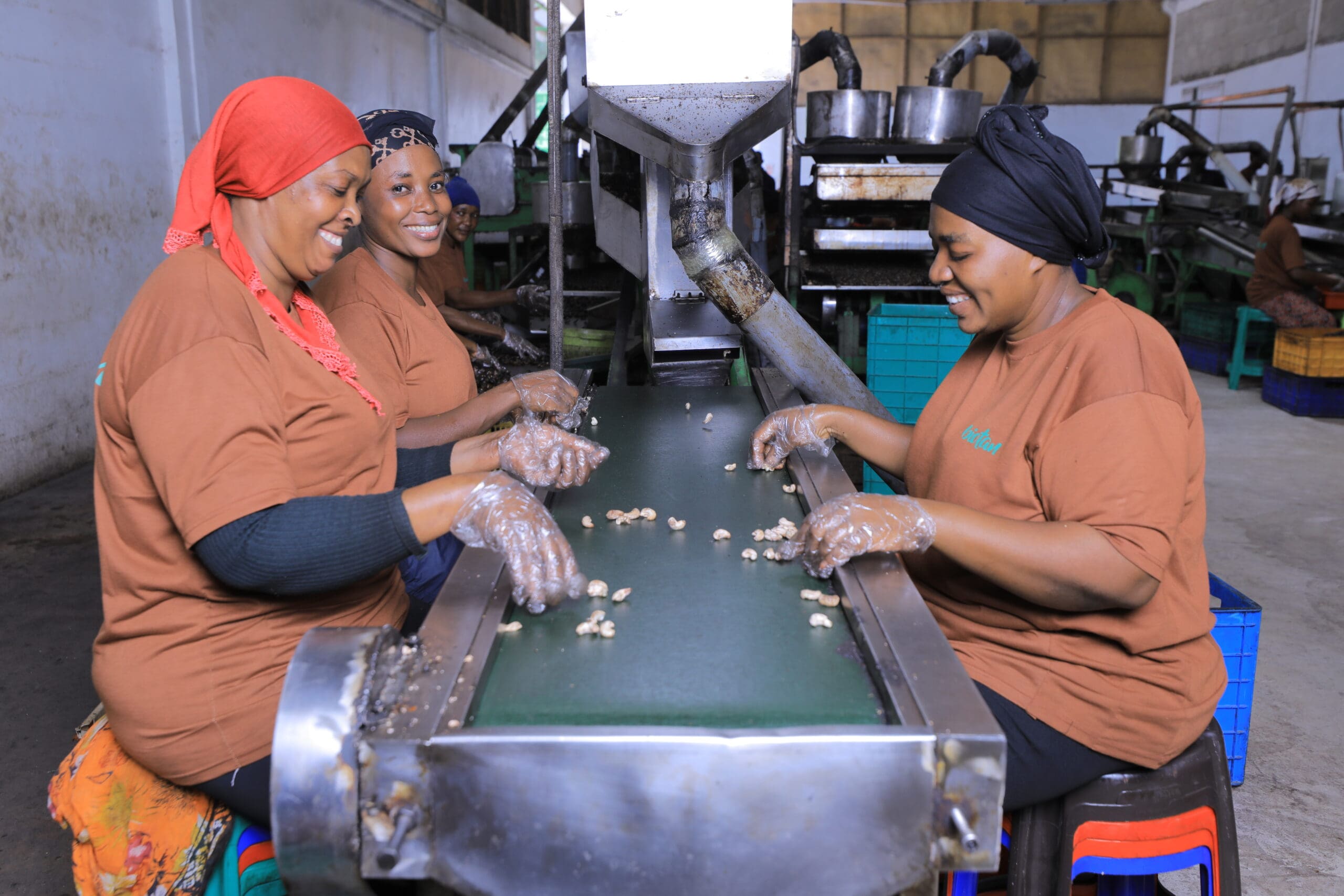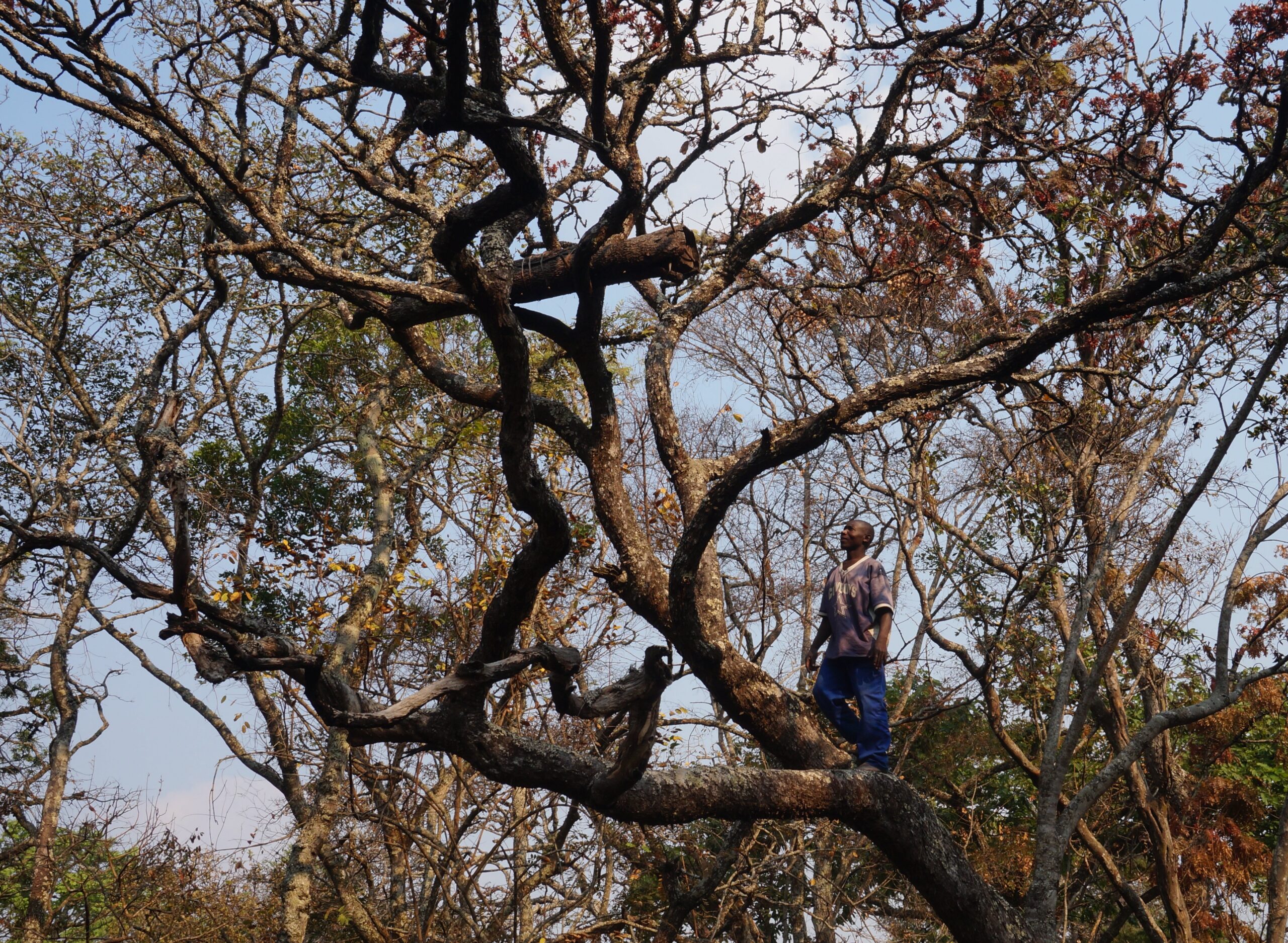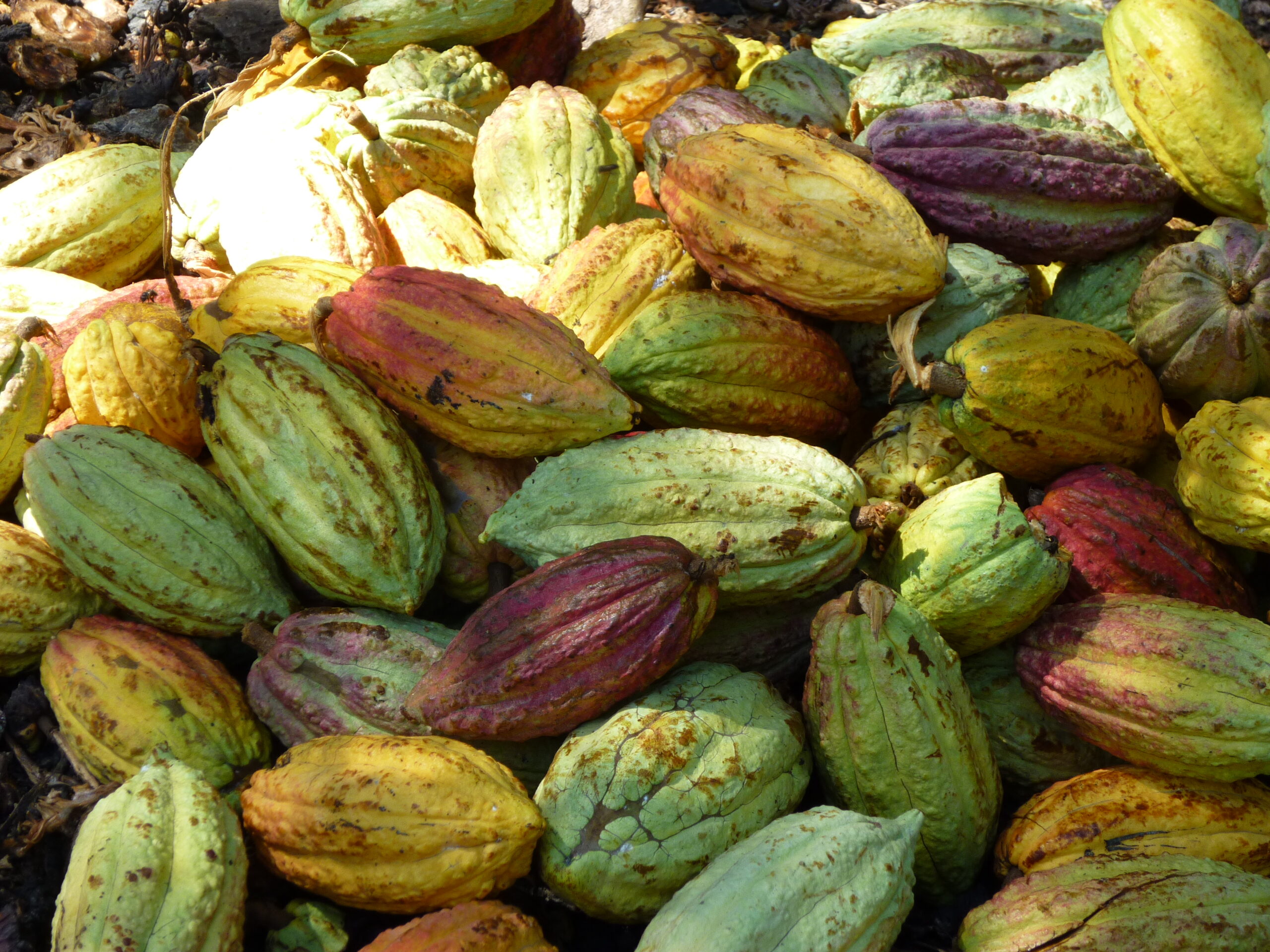
Before it enhances our ice creams, cannelés and custards sublime, did you know that vanilla had to travel a road full of pitfalls? For SIDI, Gabrielle Orliange travelled the vanilla trail to meet the cooperatives, from Madagascar’s capital, Tananarive, to the jungle around Mananara. We invite you to follow her, particularly on the day she reaches a particularly isolated area, and discover a new facet of the job of partnership manager at SIDI.
I live in Madagascar where I work part-time as a partnership officer for SIDI. Having identified a possible new partner in the agricultural sector, I needed to meet them in the field. MVE (Madagascar Vanilla Export) is a family-run SME that processes vanilla for export. It buys vanilla from two cooperatives of male and female producers, and also helps them to structure themselves.
After four months of e-mail exchanges, I organized a seven-day mission to meet them and present a detailed report to SIDI’s Financing Committee with a view to obtaining a loan.
MVE is based in Tamatave, about 400 kilometers from Tananarive, the capital of Madagascar where I live. Covering this distance took me a full day in a bush cab. Then I continued by 4X4 for two more days on bumpy roads, meeting producers in coastal areas.
Meeting in the highlands
On this fourth day, I have to reach a village near Mananara, located on the “high plateaus“1, in a very dense forest. It’s here, in this particularly remote area, that the best quality vanilla grows.
The track is too narrow for a 4X4, and we start with a two-hour ride through the mud. By the time I reach the village, some fifteen growers from the Label Vavasaha cooperative, which numbers around 500, are gathered in the village hall. I can tell they’re eager to show me their plantations. To do so, we have to go deeper into the jungle. We start by taking a pirogue, before finally clearing a path with a machete.
Once we arrived, they were very proud to show me their plots, where Madagascar’s finest vanilla is grown!
I can see big green beans hanging from the vines wrapped around the trees. Vanilla is a very demanding crop, requiring constant care. Native to Mexico, it has to be cut and the flowers fertilized by hand to produce vanilla.
At the end of the world
I’m struck by the isolation of these producers. It’s like being at the end of the world. Madagascar is already a lonely island. The vastness of its territory and the area’s lack of accessibility add to this feeling.
In a way, this isolation, which protects them from theft, suits the growers. But arriving after four days of acrobatic transport, I understand the logistical cost of growing vanilla. I have even more respect for MVE, forced to deal with this reality and its share of unforeseen events: broken-down cars, fuel supply problems. It’s not easy to get vanilla from so far away.
The second thing that stands out for me is how the value of vanilla has helped generate wealth. Even though these areas are very isolated, I see motorcycles everywhere, satellite dishes and 4X4s. Goods that are very rare on the agricultural plateaus near Tananarive, a less landlocked but poorer region that mainly produces rice.
Here, everyone grows vanilla, from a few beans to several kilos. This windfall benefits everyone, even if some benefit more than others.
For male and female growers, the difference lies in the way they sell their produce. Those who work alone find it harder to sell their produce at a good price. But those who manage to form cooperatives are able to negotiate and sell their produce at a better price. MVE is keen to buy vanilla from cooperative producers at a higher price than the market price.
Tour of the processing site
On the way home, I stop off at the final processing site in Tamatave. The MVE warehouse is located in a discreet, safe and secure area, with guards.
Here, vanilla is sun-dried for several weeks. The beans are then sorted before being cured in caissons to develop their aroma. After several months, they are checked and graded by quality before being packed for export.
In the final stage, the vanilla is sent to Tananarive before being shipped to Europe. The fragile beans travel by air. The more resistant powder can be shipped by boat. It takes no less than 90 days on average to reach France from Tananarive.
An extraordinary mission
This mission was a real discovery for me, even though I live in Madagascar. I’ve never been so far into the country. The other partners we work with on the island in the microfinance sector are much more accessible. This allows us to strike a balance. Although the partnership with MVE is financially more risky for SIDI, it fulfils our vocation of supporting the agricultural sector and strengthening this type of business.
As it is a structure that has never benefited from investments, SIDI’s loan represents real added value for it. This is what we call a “impact partner”, and I was able to measure its social and environmental commitment on the spot.
The loan was disbursed in the summer of 2024. Thanks to it, the vanilla could be purchased from the producers. As it does every year at this time, MVE is awaiting approval to export to European buyers. The sale of vanilla will allow MVE to repay the Sidi loan. If they manage to repay and meet the deadline, the loan can be renewed in 2025, enabling them to buy vanilla this summer.
- To find out more about vanilla cultivation and discover Gabrielle’s first days on mission, download her full mission report here.
Interview by Anne-Isabelle Barthélémy
1. These are high plateaus, but they have nothing to do with the Malagasy high plateau region, which rises to 1,500 m.

